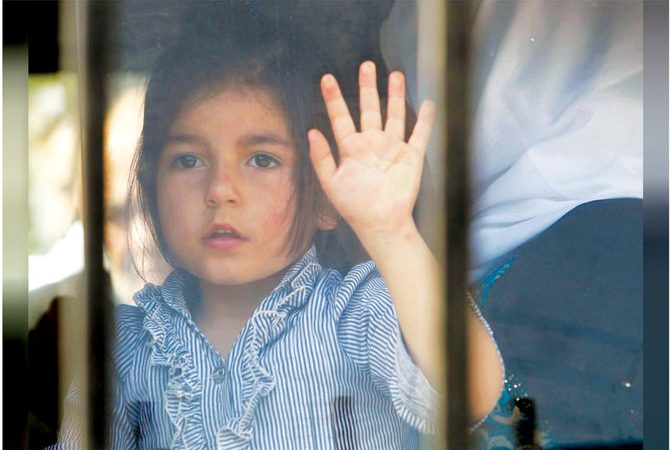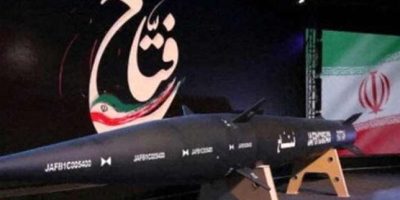Syria in ruins as war enters 9th year

SYRIA: (DNA) – The Syrian crisis enters its ninth year this month, leaving in its wake a trail of death, destruction, destitution, displacement and division.
The war has killed more than 500,000 people, displaced at least 12 million, and left the country’s economy and infrastructure in ruins.
Syrian President Bashar Assad said in a speech on Feb. 17: “We have this romantic view sometimes that we are victorious.
No, the war is not over.”Statistics and figures from Syrian Customs, provided by economist and financial advisor Dr. Humam Al-Jazaeri, show that the volume of foreign trade plummeted between 2010 and 2016 due to non-UN (US and EU) sanctions, the suspension of oil production, damage to physical infrastructure and the closure of border crossings with Jordan and Iraq.
“A compliance buffer zone at financial institutions has been put in place voluntarily, especially by international banks, against transactions in goods and services traded with Syria, leading to a significant rise in international transaction costs, including the costs of shipping, insurance and financing,” he said.
“Due to non-UN sanctions, combined with the conflict, the capabilities of Syrian banks have been significantly eroded in facilitating international payments.”
The tide of the war has turned in the Syrian regime’s favor, with the bulk of the country back in its control, prompting some Arab states to begin normalizing ties with Damascus.
Jordan reopened its main border crossing with Syria in October 2018, and Sudan’s President Omar Al-Bashir visited Damascus in mid-December, the first Arab ruler to visit the country since the war began in 2011.
There is a growing consensus among Arab League countries about readmitting Syria to the regional bloc, after its membership was suspended seven years ago.
Mark Gasiorowski, a political science lecturer at Tulane University in the US, told.
“This is part of a process of rehabilitating the Syrian regime that has been going on for a year or so now, as the regime has increasingly been winning its civil war with extensive help from Russia and Iran.”
Even though Arab states are reluctant to have any dealings with Damascus, “Syria is a key Arab state, and other Arab powers can’t afford to keep ostracizing it, as the US and EU countries can,” he said.
The UN High Commissioner for Refugees (UNHCR) forecast in December 2018 that up to 250,000 Syrian refugees could return to their devastated homeland in 2019, despite massive hurdles facing them.
But the following month, the UN said conditions were not right for the safe and orderly return of large groups of refugees.
The French and German ambassadors to Syria blame Damascus for “creating a climate of fear and injustice” that is preventing refugees from returning.
They called on Damascus to “credibly end arbitrary arrests and prosecution,” and to “stop restricting the work of the UNHCR” so that “it can freely move within Syria to access and protect all refugees.”
Meanwhile, the third Brussels conference on “Supporting the Future of Syria and the Region,” held on March 12-14, noted that more than 11 million Syrians are in need of humanitarian assistance.
The conference pledged $7 billion for 2019 in aid for Syrians in the country and its neighbors.
Even though the security situation has improved with the defeat of Daesh, many parts of Syria remain a serious security concern.
And while pro-regime forces have recaptured areas surrounding the capital, shortages of fuel, cooking gas and electricity have hit Damascus hard this winter, leading to rising food prices and transport costs.
With persistent power cuts and a rise in fuel prices, residents are increasingly relying on gas for heating. Other major cities are also facing an energy crisis, including Aleppo, As-Suwayda, Hama, Homs and Latakia.
Locals have taken to social media to express their anger not just toward their living situation, but also Parliament Speaker Hammouda Al-Sabbagh’s claim that these complaints are “campaigns … managed by foreign parties.”
Social media activist Ahmed S. said: “The people’s rightful demands for the provision of basic products are popular demands that Parliament … must support, not consider them campaigns that are managed by foreign parties.”
Related News

Iran nears deal to buy supersonic anti-ship missiles from China: report
TEHRAN, FEB 24: Iran is close to a deal with China to purchase anti‑ship cruiseRead More

Iranian military helicopter crashes into fruit market, four dead
TEHRAN, FEB 24: An Iranian Army helicopter crashed into a fruit market in the centralRead More


Comments are Closed